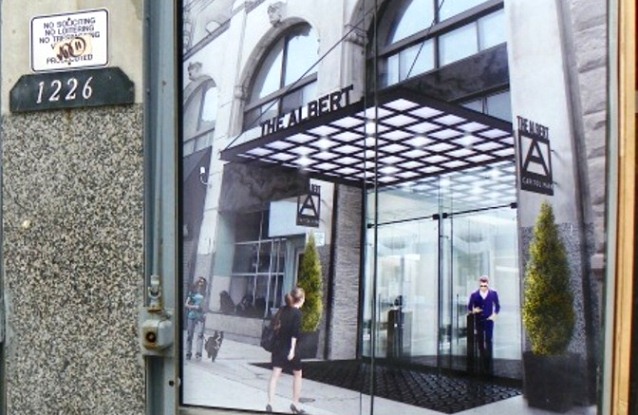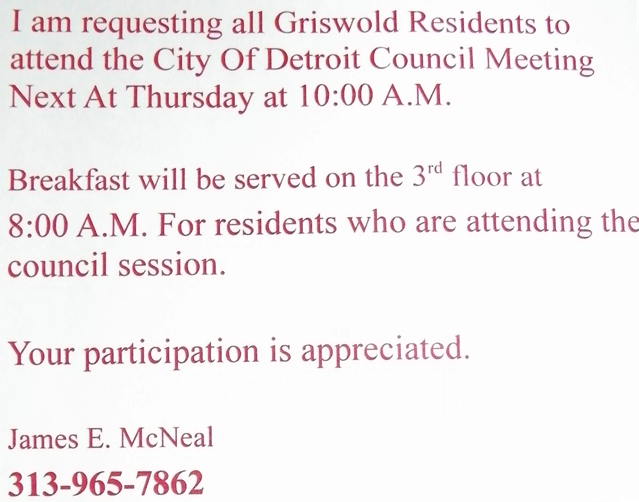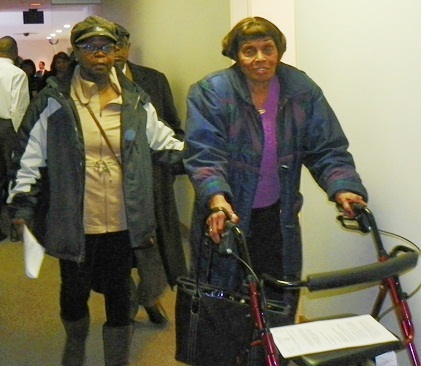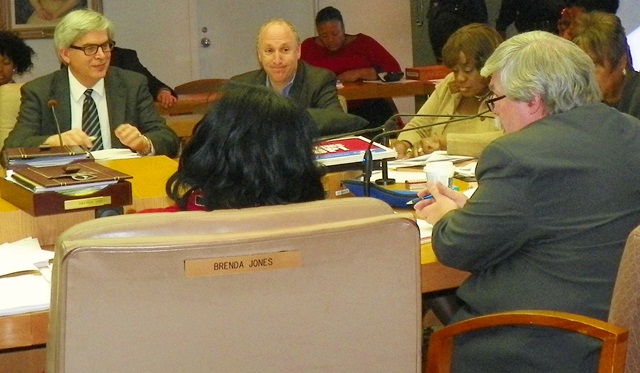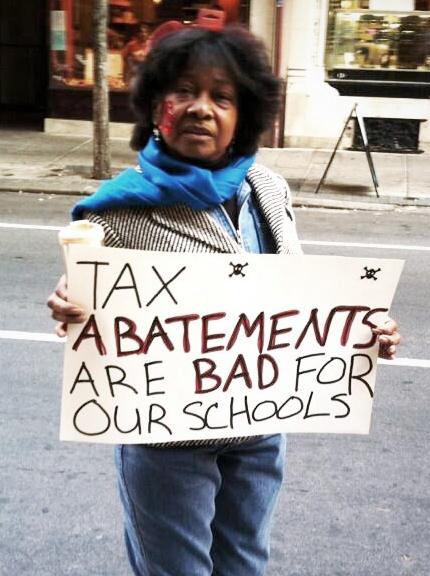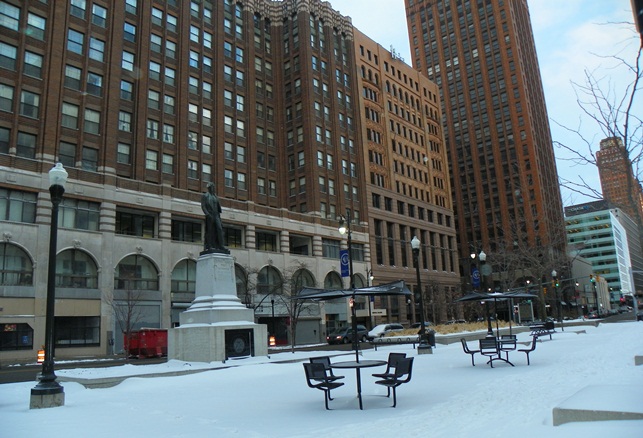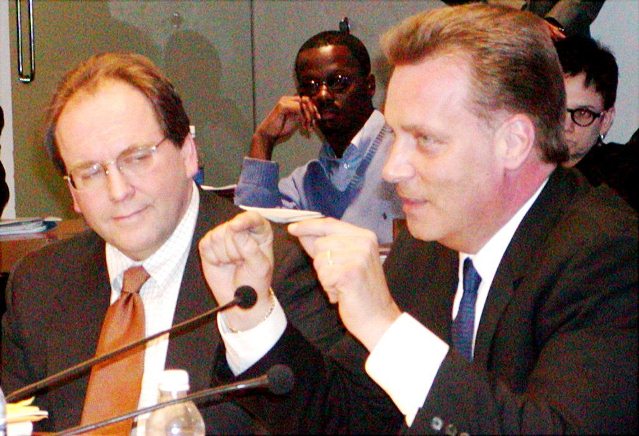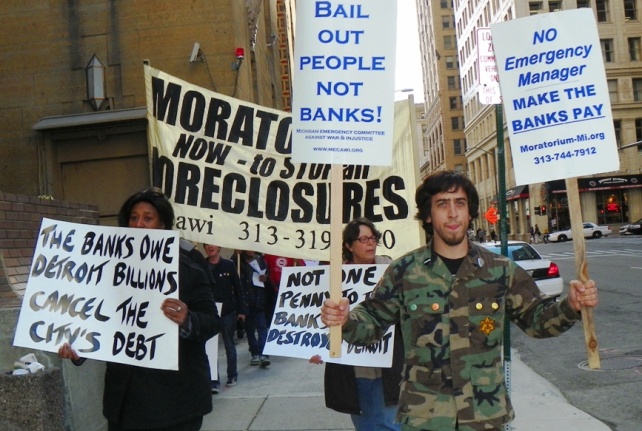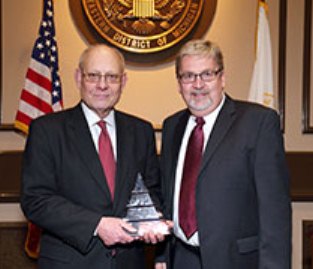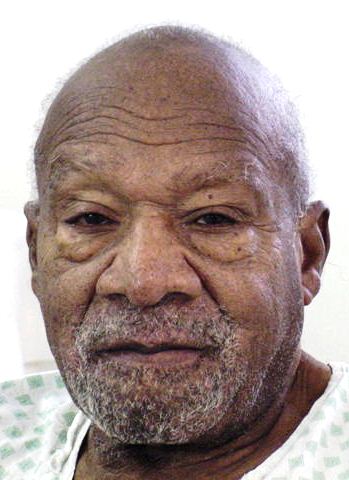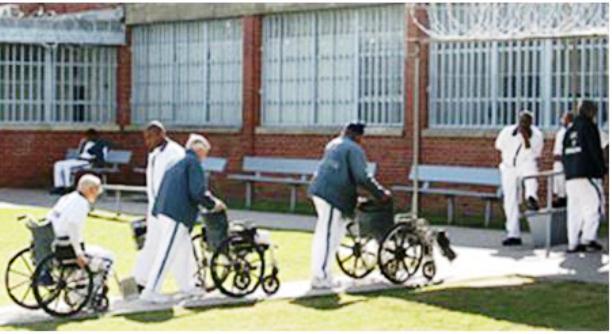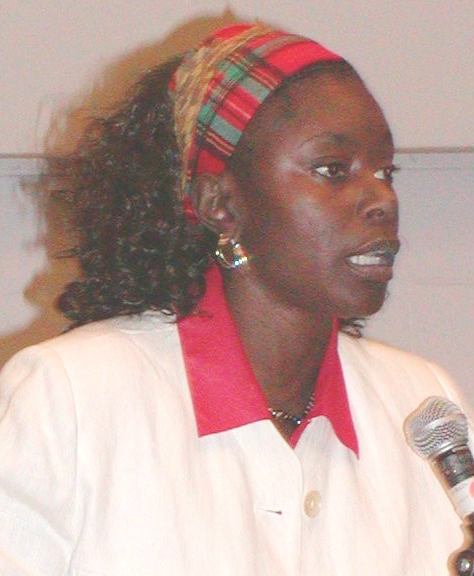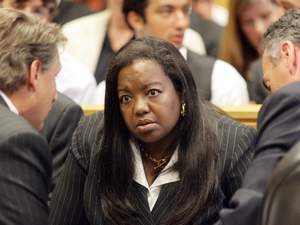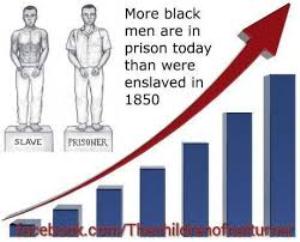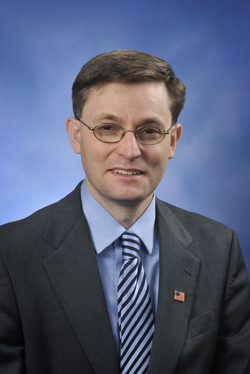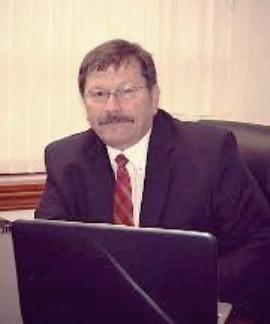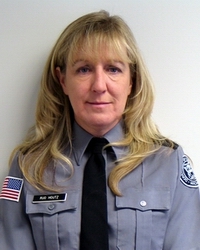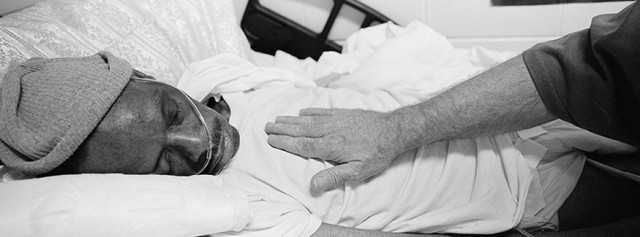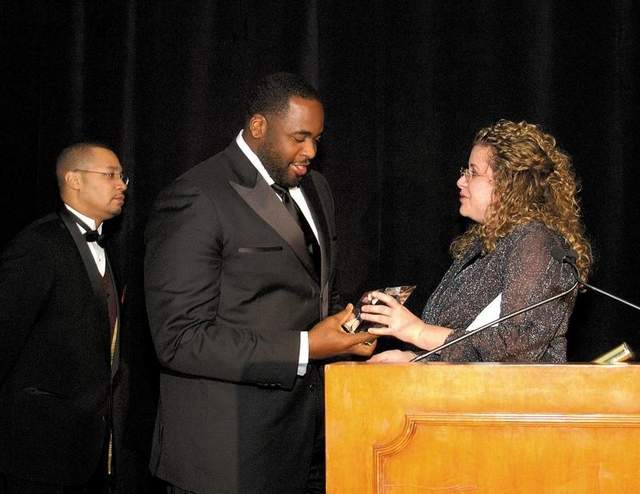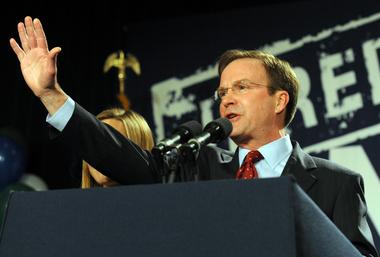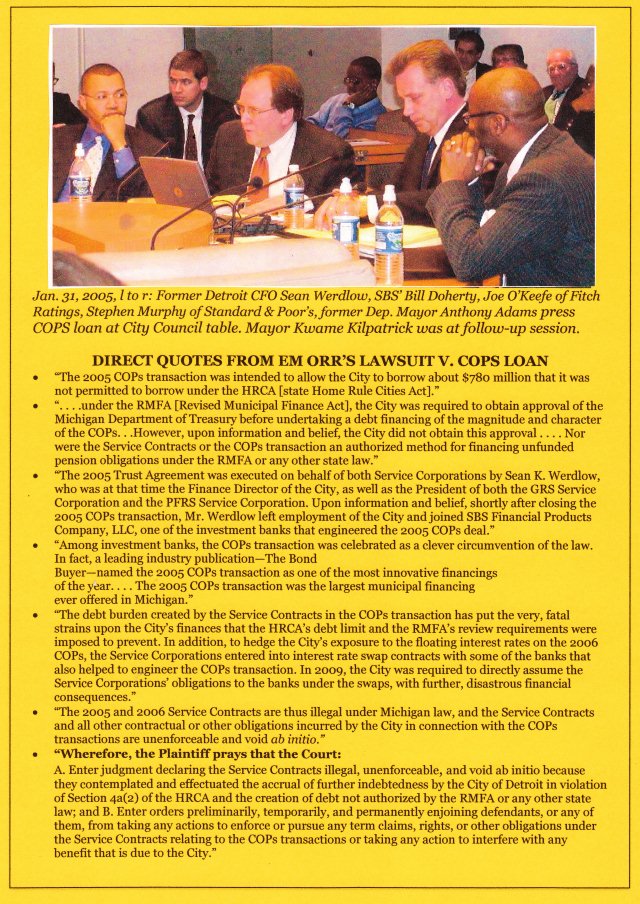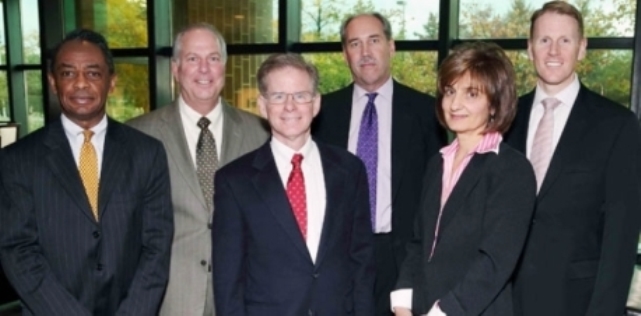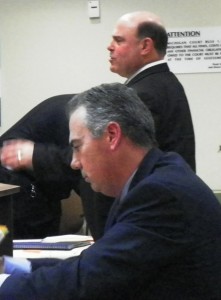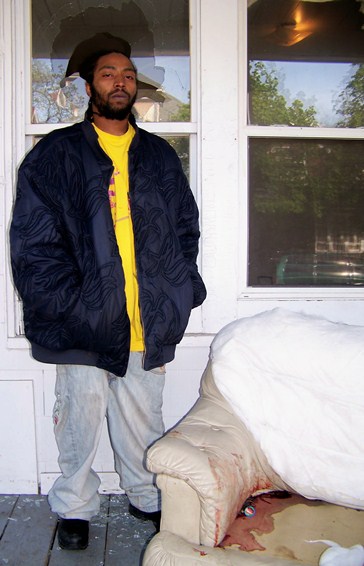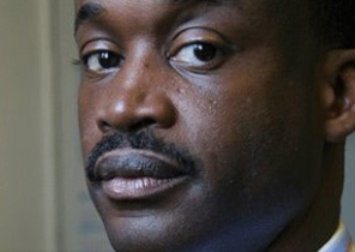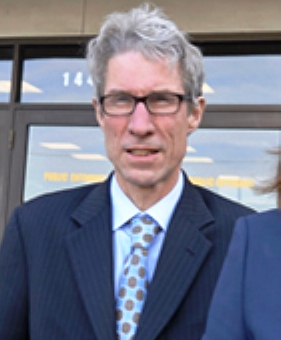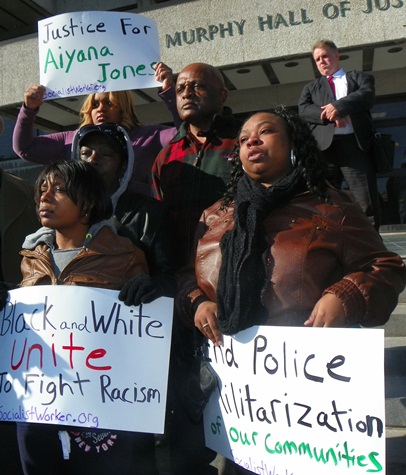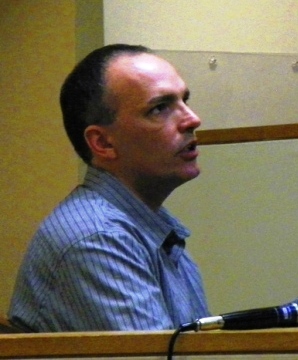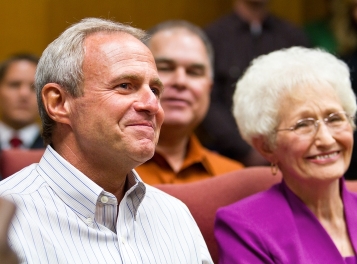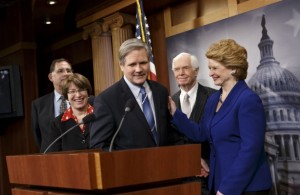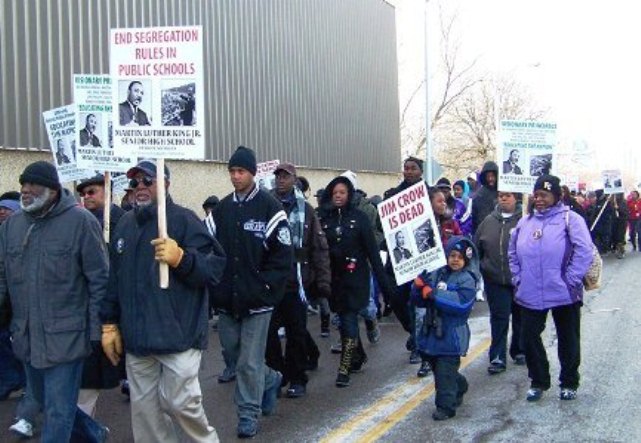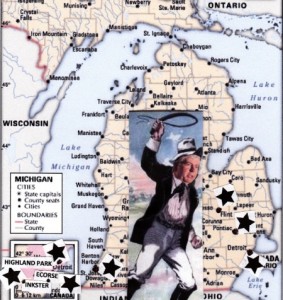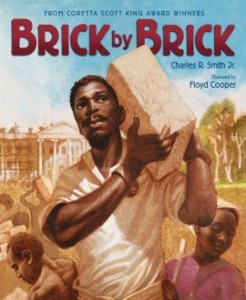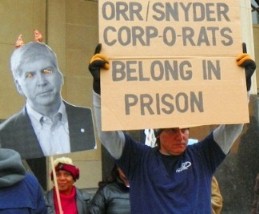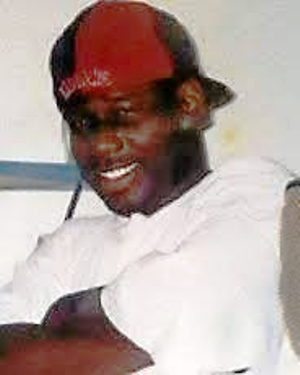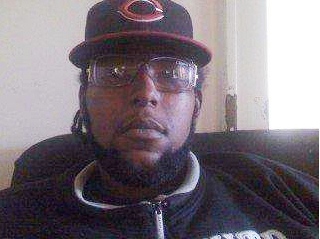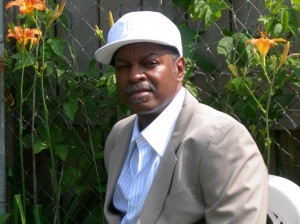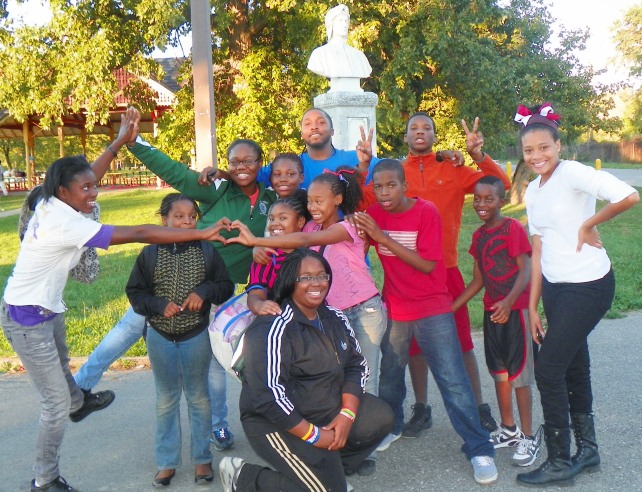
The future of Detroit’s youth, shown here enjoying a sunny day on Belle Isle in Sept. 2012 is gravely imperiled.
 By BAR executive editor Glen Ford
By BAR executive editor Glen Ford
“We must make it possible for the people to see the city as it actually exists, so that they can rationally dream, plan and build the city as it should be.”
Hundreds of low-wage surveyors scour the depopulated streets of Detroit, mapping the extent of “blight” [11] that has consumed the city. The three-person teams of the Blight Removal Task Force [12] are financed by private corporations and foundations whose mission is the “orderly” destruction of the nation’s largest Black metropolis, to clear the way for a “new” city – one in which marginalized people like the surveyors themselves will be relegated to the shadows.
The resulting data-base will allow real estate moguls like Quicken Loans founder Dan Gilbert, the task force sugar daddy, to create an urban grid that maximizes land values and forms the basis of future city planning. The corporate schemes that flow from the survey, beginning with recommendations to be released in late March, will dictate the types of people that the city will accommodate, and their “place” – if any – in the new urban configuration. Other corporate-financed demolition planners, under the so-called Detroit Blight Authority [13], have already begun clearing land for private exploitation.
There is no question that Detroit’s state-imposed bankruptcy has dramatically quickened the pace of the land rush. However, private capital has always positioned itself on the ground floor of urban planning in the United States, where cities are first configured by profiteers and then occupied by those populations that can manage to fit themselves into the capitalist-contoured framework.
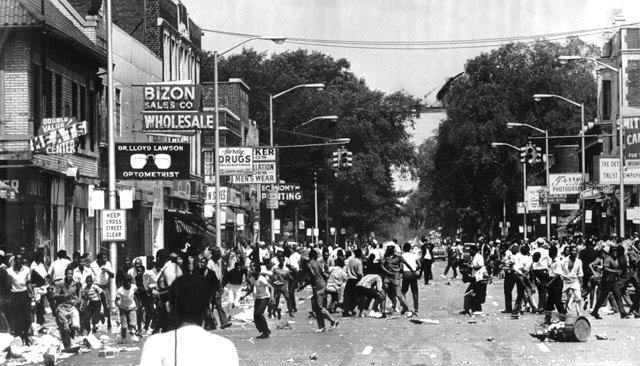
Detroit’s Black population rose up in 1967 against intolerable conditions of poverty and police brutality. The conditions are comparable today. Whites and real estate agents used this as an excuse for the ignominious white flight.
The phenomenal, stunning – and wholly unplanned – explosion of Black urban pluralities and majorities in the Sixties and Seventies occurred when capital followed white populations in flight from the cities. Capital later reasserted itself, paving the way for gentrification with its “renaissance” projects in cities across the nation, thoroughly suborning the newly established Black political (misleadership) class to the task of African American removal.
This mostly incremental process, streamlined through the normal intrigues of capitalist corruption of the public sphere, is always preceded by investments in corporate urban planning. Usually, such planning is carried out in secret, as a matter of course, with selected political “insiders” allowed a peek and a small slice as payment for facilitating the grand schemes. It is the methodical return of corporate capital that has capped and rolled back the growth of “Chocolate Cities” in the U.S.
“Detroit’s state-imposed bankruptcy has dramatically quickened the pace of the land rush.”

- Little girl in shock after the destruction Hurricane Katrina wrought on New Orleans. A good number of Detroit’s neighborhoods resemble this photo now after massive illegal foreclosures and evictions by the banks.
However, some cities were too darkly chocolate for incremental transformation. Nature provided a miraculous opportunity for capital to put its plans on steroids in New Orleans, in 2005. As I wrote in the May 5, 2007 issue [14] of Black Agenda Report, in response to Rev. Jesse Jackson’s contention that “Katrina is a metaphor for abandoned urban America”:
“The problem is not the lack of an urban policy, but the failure to formulate progressive Black urban policies and plans. Corporate America and finance capital have both general and detailed visions of what the cities should look like and which populations and enterprises will be nurtured and served by these new and improved municipalities – ‘renaissance’ cities of the (near and, in some places, very near) future.

- New Orleans Public School children on the first day of classes in 2006. The school system is now at least 70 percent privatized, and much more white.
“Corporate planners and developers believed they had been blessed by nature when Katrina drowned New Orleans, washing away in days the problem-people and neighborhoods that would ordinarily require years to remove in order to clear the way for ‘renaissance.’ “Greed led to unseemly speed, revealing in a flash the outlines of the urban vision that would be imposed on the wreckage of New Orleans.
As in a film on fast-forward, the ‘plot’ (in both meanings of the word) unfolded in a rush before our eyes: Once the Black and poor were removed, an urban environment would be created implacably hostile to their return. The public sector – except that which serves business, directly or indirectly – would under no circumstances be resurrected, so as to leave little ‘space’ for the re-implantation of unwanted populations (schools, utility infrastructure, public and affordable private housing, public safety, health care).”
“Corporate America and finance capital have both general and detailed visions of what the cities should look like and which populations and enterprises will be nurtured and served.”
“Disaster Capitalism” does not require a natural calamity; it is fully capable of accomplishing the desired results by man-made means. Detroit, a city so deeply chocolate that a simple downtown renaissance strategy could not be sufficiently racially transformative in the near-term, needed to be crushed by the heavy hand of the state, through direct dictatorship and bankruptcy.
 That having been accomplished, the corporate planners are tripping over themselves in haste to create the new urban grid. Since the dismantling of Detroit is a very public affair, the corporate planning process will also be more transparent than usual. The accelerated schedule of political atrocities surrounding the unprecedented dissolution of a major American city – and the breakneck speed with which the Wall Street juggernaut now moves in pursuit of its unfolding neoliberal agenda – will make the agony of Detroit a spectacularly ugly affair.
That having been accomplished, the corporate planners are tripping over themselves in haste to create the new urban grid. Since the dismantling of Detroit is a very public affair, the corporate planning process will also be more transparent than usual. The accelerated schedule of political atrocities surrounding the unprecedented dissolution of a major American city – and the breakneck speed with which the Wall Street juggernaut now moves in pursuit of its unfolding neoliberal agenda – will make the agony of Detroit a spectacularly ugly affair.
Lessons that should have been learned from Katrina will present themselves, again, with twists even more applicable to the rest of besieged urban America. With low-wage surveyors plodding Detroit’s streets, providing data for corporations to create the new grid that will abolish their own neighborhoods, our 2007 analysis [14] remains relevant:
“Had the post-1970 crop of urban Black leadership used the intervening decades to formulate urban plans and policies that transformed the cities in ways that served the needs of the new Black majorities and pluralities, they would now be capable of bargaining with onrushing capital – and would have had something to offer to the people…as corporations presented plans for the coup de grace on the Black majority. But the misleadership class spent their terms in office wasting the historical opportunity, and the window is rapidly closing.”
We cannot accept that it is too late for Black Detroit, because if that is true, then it is also probably too late for the other heavily Black cities of the nation. All of them face the same enemy: concentrated capital, which abhors concentrated Black people.
Chocolate Cities Must Save Themselves
Back in 2003, at the urging of Bill Lucy, then head of the Coalition of Black Trade Unionists, I wrote a series of articles for BlackCommentator.com titled, “A Plan for the Cities to Save Themselves [15].” The five-part project stretched over nearly a year, from August 2003 to July 2004. The central conclusion was that urban political activists must also be urban planners who are as knowledgeable about the cities in which they organize, as are their corporate enemies. Serious urban organizers/planners need to do thorough audits of the assets of their cities, just as the corporations do. As we wrote in Part Five [16]: Continue reading




